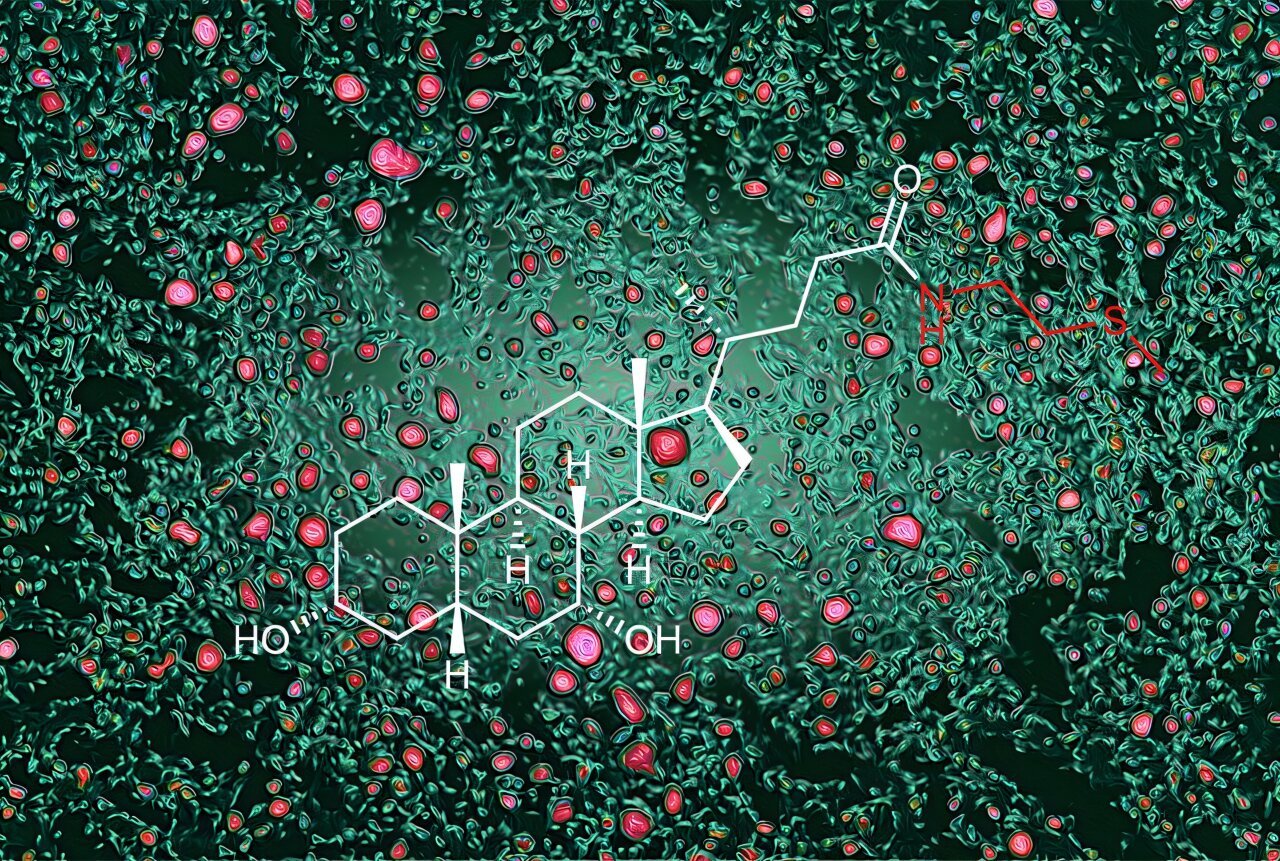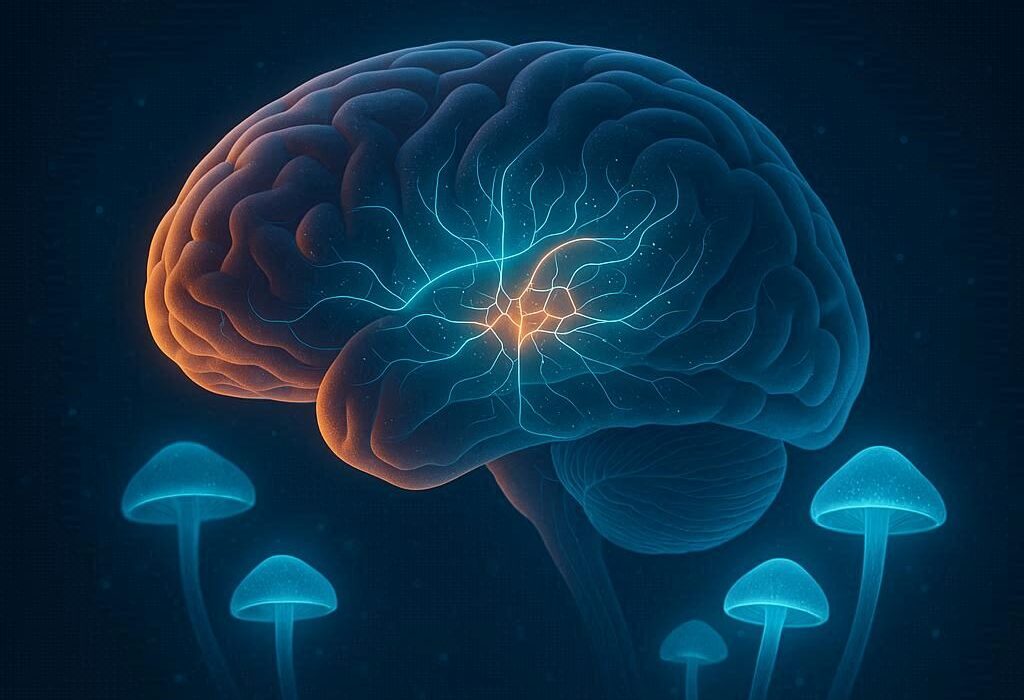The human body has evolved alongside a vast community of microbes that reside in the gut, a relationship that plays a crucial role in the digestion of food, absorption of nutrients, and the overall functioning of the body. These beneficial microbes, collectively referred to as the microbiota, not only help with breaking down complex foods but also produce a variety of bioactive molecules that have significant effects on the host’s metabolic processes. In a recent study published in Nature, researchers from Weill Cornell Medicine and the Boyce Thompson Institute at Cornell University have uncovered new details about how gut microbes and the body collaborate to fine-tune fat metabolism and cholesterol levels, specifically through the regulation of bile acid production.
Bile acids, also known as bile, are vital molecules that aid in the digestion and absorption of fats. They are synthesized in the liver from cholesterol and then secreted into the intestine, where they emulsify dietary fats, making them easier for the body to absorb. Over time, scientists have recognized that gut bacteria play an essential role in modifying bile acids. These bacteria convert bile acids into various forms that interact with specific receptors in the body, influencing metabolic pathways related to fat digestion and cholesterol regulation.
For some time, it has been known that gut bacteria modify bile acids to activate a receptor called FXR (Farnesoid X receptor), which regulates bile acid production by reducing its synthesis. However, the new study led by Dr. David Artis and Dr. Frank Schroeder reveals a previously unrecognized mechanism involving an enzyme produced by intestinal cells that converts bile acids into a different form. This altered form, called bile acid-methylcysteamine (BA-MCY), has the opposite effect of the modified bile acids—rather than reducing bile acid production, it inhibits FXR and promotes bile production, thus enhancing fat metabolism.
Dr. Artis, a prominent researcher in immunology and inflammation, explained the significance of this discovery: “Our study reveals there is a dialogue occurring between the gut microbes and the body that is vital for regulating bile acid production.” The research highlights the importance of the body’s role in regulating its own bile acid levels, rather than solely relying on the gut microbes to do so. This interplay between the microbiota and the body helps to maintain a balance in fat metabolism and cholesterol regulation, which is crucial for overall health.
Bile acids are not just digestive aids; they also function as signaling molecules that influence a wide array of metabolic processes, including cholesterol metabolism and fat storage. FXR, the receptor targeted by bile acids, acts like a “traffic light,” controlling the flow of cholesterol and bile acid production to avoid excess buildup in the body. When gut bacteria produce large amounts of bile acids, these molecules bind to FXR and inhibit bile acid production to prevent overaccumulation. However, as the study shows, the body can counteract this signal by producing BA-MCYs to stimulate bile production, ensuring that fat metabolism continues at a healthy pace.
This discovery is the result of a cross-campus collaboration between the laboratories of Dr. Artis and Dr. Schroeder, combining expertise in immunology, chemical biology, and host-microbiota interactions. Using a technique called untargeted metabolomics, the researchers were able to identify the different molecules produced by mice, both with and without gut microbes. By comparing the results, they could pinpoint molecules that were dependent on the presence of gut bacteria for their production. BA-MCYs stood out as a new class of molecules that, while produced by the body, rely on the gut microbiota for their synthesis.
The researchers demonstrated that BA-MCYs play a crucial role in regulating bile acid levels. When the microbiota generates large amounts of bile acids, these molecules activate FXR, which would typically inhibit bile production. However, the body counteracts this process by producing BA-MCYs, which inhibit FXR and promote the production of bile acids. This balancing act ensures that bile acid levels do not fall too low, preventing a slowdown in fat metabolism.
Interestingly, the study also showed that increasing BA-MCY levels helped reduce fat accumulation in the liver, which could have significant implications for the treatment of metabolic disorders. By boosting BA-MCY production, the researchers were able to mitigate liver fat buildup, a key feature of fatty liver disease. Moreover, dietary interventions, such as increasing fiber intake, were found to promote the production of BA-MCYs, suggesting that dietary approaches could be used to support this metabolic process. Fiber is known to have a range of beneficial effects on gut health, and this study underscores its potential role in modulating fat metabolism and cholesterol levels.
The presence of BA-MCYs in human blood samples further suggests that this mechanism is not limited to mice and may occur in humans as well. Dr. Mohammad Arifuzzaman, another co-author of the study, noted that the discovery of BA-MCYs in human blood opens the door for exploring how this system might be leveraged to treat metabolic disorders, such as obesity, high cholesterol, and fatty liver disease.
The findings of this study offer a new perspective on the role of gut microbes in regulating fat metabolism and cholesterol levels. By identifying BA-MCYs as key molecules in this process, the researchers have uncovered a potential target for therapeutic interventions aimed at improving metabolic health. Moreover, the study highlights the importance of a balanced gut microbiota in maintaining metabolic homeostasis, suggesting that disruptions to this microbial community could contribute to a variety of metabolic disorders.
The implications of this research extend beyond the treatment of metabolic diseases. The collaborative approach used in this study, combining metabolomics, chemical biology, and microbiota research, offers a powerful tool for understanding the role of gut bacteria in a wide range of diseases. From chronic inflammation and infection to obesity and cancer, the gut microbiota plays a central role in the development and progression of many health conditions. Understanding the molecular dialogues between the microbiota and the body could lead to novel therapeutic strategies for managing these diseases.
Reference: Tae Hyung Won et al, Host metabolism balances microbial regulation of bile acid signalling, Nature (2025). DOI: 10.1038/s41586-024-08379-9






